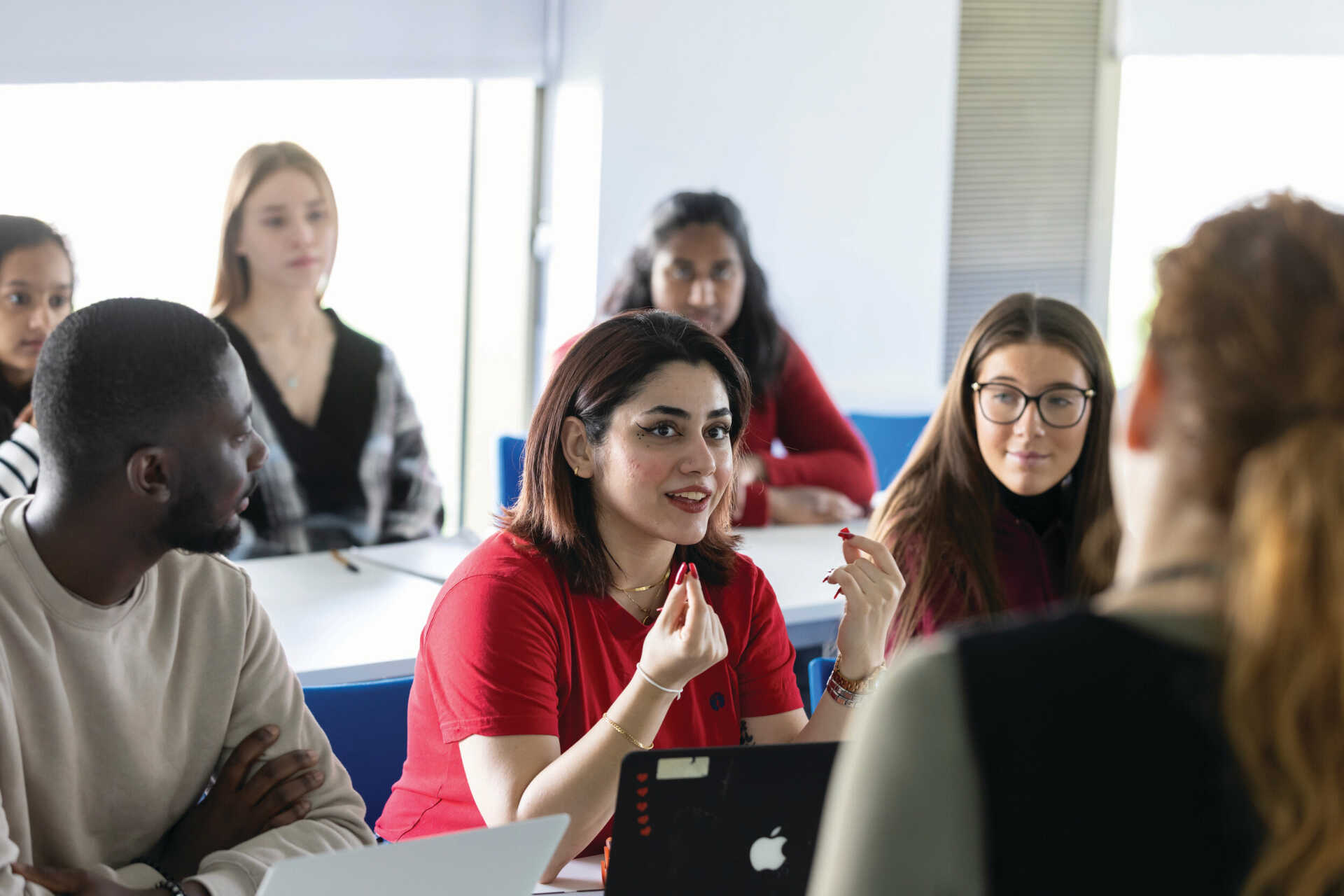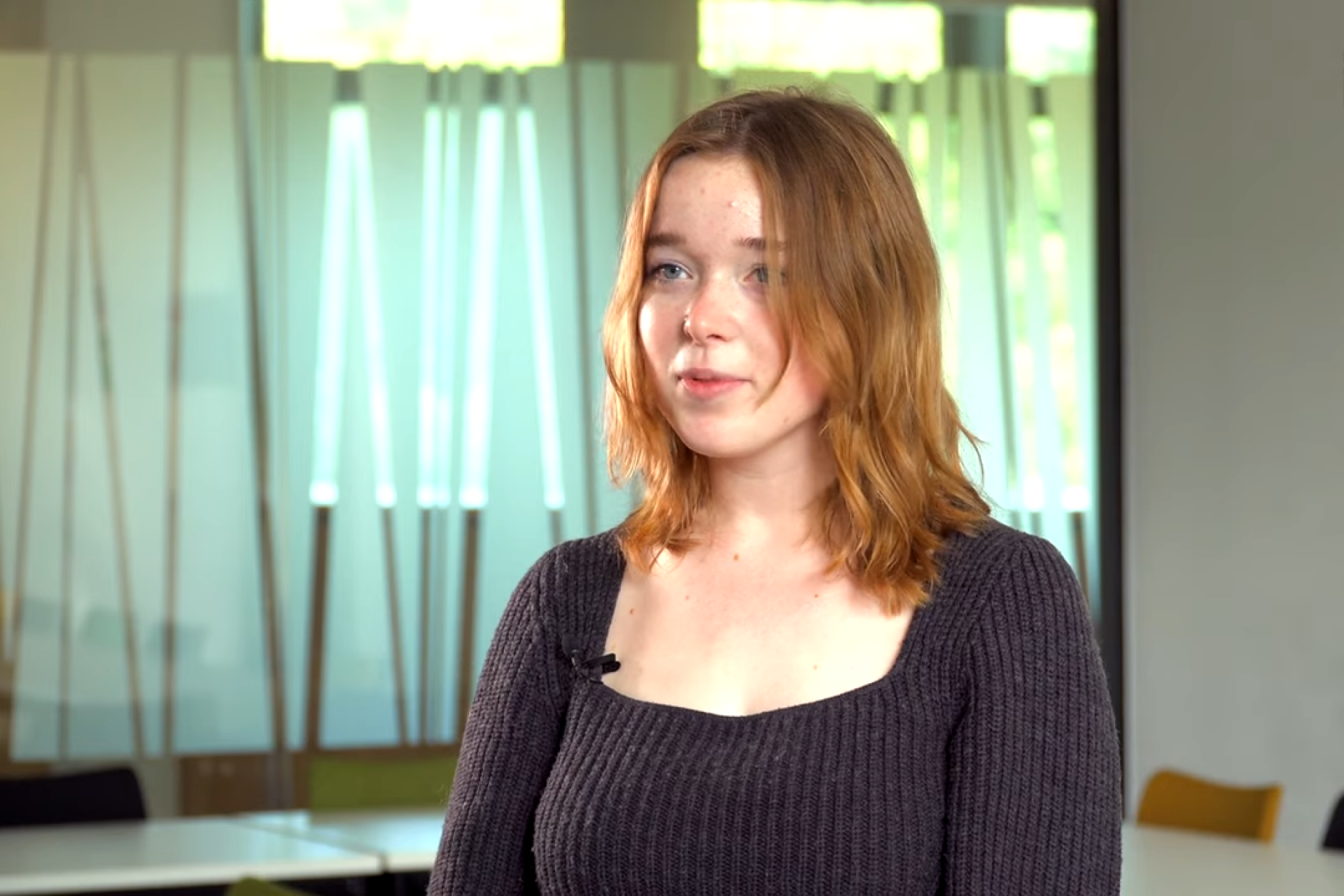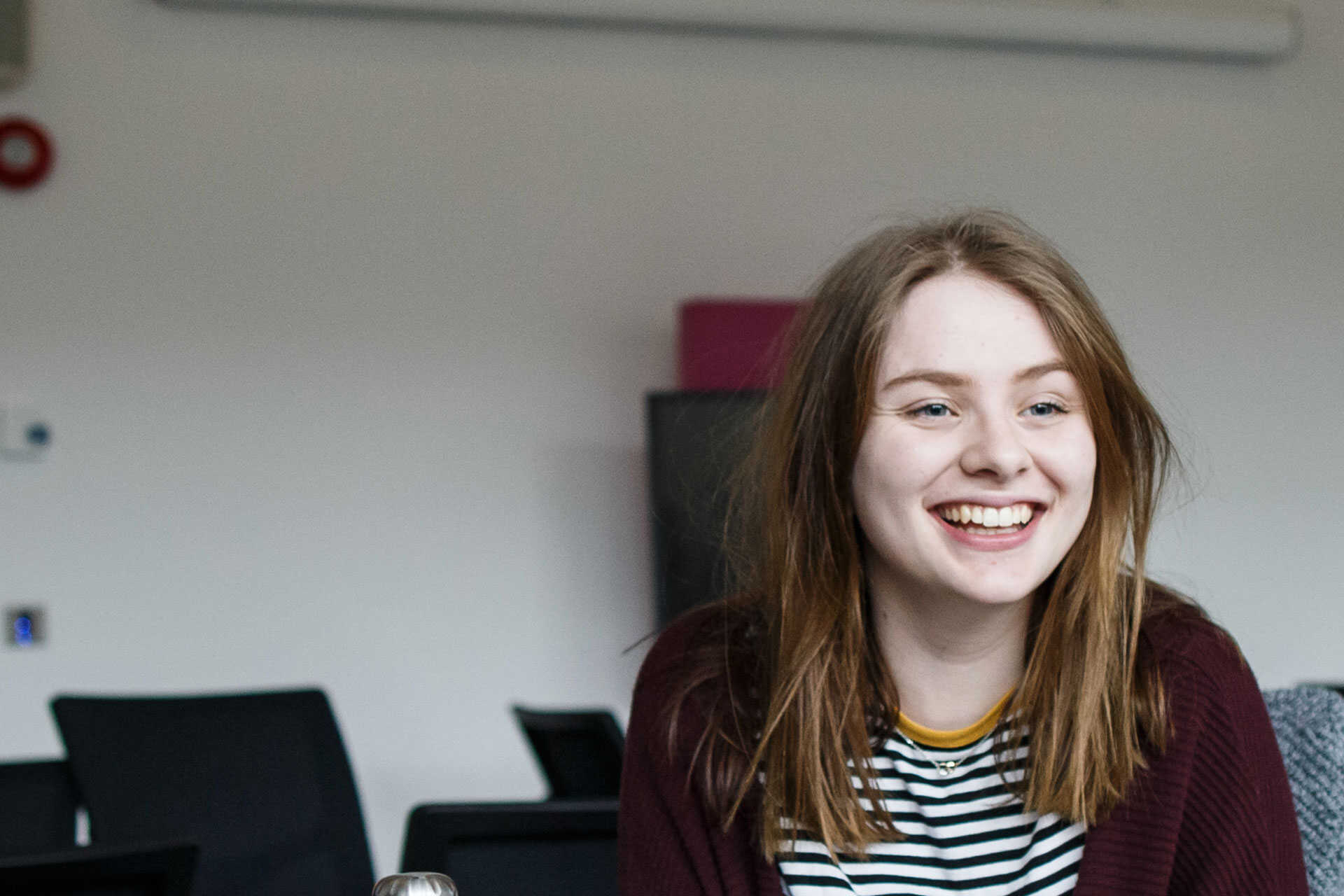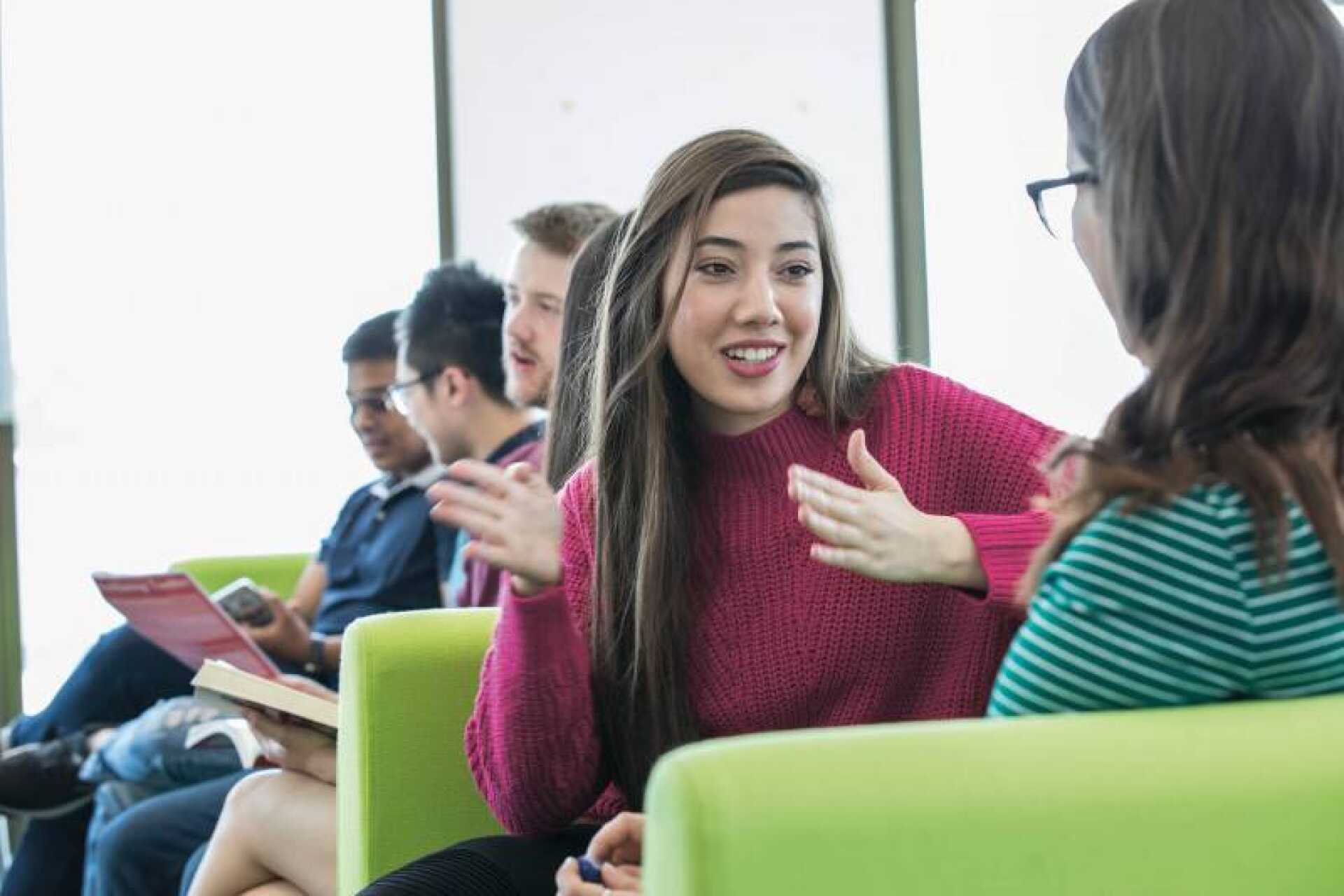
Develop advanced skills in one or more languages and learn about the societies they're rooted in. Begin at a level that matches your ability in your chosen languages, in order to make rapid progress and prepare you to live and work in a globalised world.
You will benefit from being guided by expert staff who will help you build advanced language skills on a flexible and engaging course. You'll study one or two languages of your choice - French, German, Italian or Spanish. You’ll also have the option to take an additional year in a third Language, or spend a year studying or working abroad.
Your year abroad is a great opportunity to show future employers that you can adapt to a new environment. You'll also build your fluency and develop essential skills to get you career-ready.
As well as language skills, our graduates leave us with a greater cultural, social and political understanding of the nations that speak them. Our approach to teaching ensures you are ready to step into a career of limitless opportunities, live and effect change in the places you want to see it.

Modern Languages unlocks opportunities across the globe. From classroom to boardroom, you'll be ready to craft a career tailored to your interests.
All our languages ranked in the top 10 for student satisfaction in The Complete University Guide 2023.

Our optional Year Abroad give you the intercultural awareness and real-world experience that are highly sought after by employers.
With a wide range of modules on offer, you can study 1 language, or 2, or focus on business with our BA Modern Languages and Management programme.

Alice and Georgie share their experiences of studying Modern Languages at Kent.
Our typical offer levels are listed below and include indicative contextual offers. If you hold alternative qualifications just get in touch and we'll be glad to discuss these with you.
BBB
The University will consider applicants holding BTEC National Diploma and Extended National Diploma Qualifications (QCF; NQF; OCR) on a case-by-case basis. Please contact us for further advice on your individual circumstances. A typical offer would be to achieve DMM.
120 tariff points - typically H5 H6 H6 or equivalent
Applicants wishing to study two languages should have grade B or equivalent at GCSE, ideally in one of your target languages. This is not required of applicants wishing to study one language only.
Pass the University of Kent International Foundation Programme.
The University will consider applicants holding T level qualifications in subjects closely aligned to the course.
Obtain Access to Higher Education Diploma with 45 credits at Level 3 with 24 credits at Distinction and 21 credits at Merit.
When applying you will need to indicate, under 'further details' in the 'choices' section of your application, the language or languages that you wish to study using the codes below. For further information on completing your UCAS form, please visit the UCAS website.
It may be possible to study further languages to a lower level of proficiency than degree level in our Language Centre, subject to demand. This is arranged once you register as a student.
You could choose to add a Year in a Language to your degree to create a four-year programme with a third language option.
The following modules are indicative of those offered on this programme. This listing is based on the current curriculum and may change year to year in response to new curriculum developments and innovation.
If you are studying one language, you must choose modules with a total of 120 credits at each stage:
If you are studying two languages, you must choose modules with a total of 120 credits at each stage:
Language modules
Route-defining
Free choice modules
Language modules
Route-defining modules
Free choice modules
It is possible to study the BA in Modern Languages as a three-year programme, or to take the four-year BA in Modern Languages with a Year Abroad.
Going abroad as part of your degree is an amazing experience and a chance to develop personally, academically and professionally. You experience a different culture, gain a new academic perspective, establish international contacts and enhance your employability.
The Year Abroad is assessed on a pass/fail basis and will not count towards your final degree classification. You spend the year working as an English language assistant or in approved employment, or studying at one of our partner universities.
Language modules
Route-defining modules
Free choice modules
Compulsory language modules typically involve three to four hours of classes per week, including one hour of small group work with a native speaker. We also make extensive use of computer-assisted language learning packages and audio and video materials.
Culture and literature modules typically involve a weekly two-hour seminar plus essay supervision. We employ language lectors, who are all native speakers, to help students improve their fluency and make rapid progress.
At all stages, assessment is based 100% on coursework (essays, oral presentations) in the first half of the year, and a combination of coursework and examination in the second half of the year. Credits from your year abroad count towards your final degree.
For a student studying full time, each academic year of the programme will comprise 1200 learning hours which include both direct contact hours and private study hours. The precise breakdown of hours will be subject dependent and will vary according to modules.
Methods of assessment will vary according to subject specialism and individual modules.
Please refer to the individual module details under Course Structure.
For programme aims and learning outcomes please see the programme specification.
I really enjoy the oral seminars too – I have a native French teacher, who is really enthusiastic, really fun.

The ability to speak more than one language is a key asset in the global employment market, and one that employers seek out. This means you can flexibly work across many fields and industries, and of course, across different countries.
Beyond your language skills, you will graduate equipped with skills such as, communication, mediation, analysis and leadership. These give you confidence to offer creative solutions when faced with challenges, and the ability to express your ideas with clarity and passion. These are skills that make employers take notice, and you will be able to make change happen in the places you want to see it.
Our graduates are proof of this, going into fields as varied as: international banking, diplomacy, publishing, journalism, interpreting and translating, media, marketing and language teaching. Wherever your passions and future lie, through studying Modern Languages at Kent, you will have the tools needed to get there.

As time’s gone on, I’ve got more confident about going on air and now I’d like to present my own show.

The 2024/25 annual tuition fees for this course are:
For details of when and how to pay fees and charges, please see our Student Finance Guide.
For students continuing on this programme, fees will increase year on year by no more than RPI + 3% in each academic year of study except where regulated.*
The University will assess your fee status as part of the application process. If you are uncertain about your fee status you may wish to seek advice from UKCISA before applying.
Find out more about accommodation and living costs, plus general additional costs that you may pay when studying at Kent.
Kent offers generous financial support schemes to assist eligible undergraduate students during their studies. See our funding page for more details.

We have a range of subject-specific awards and scholarships for academic, sporting and musical achievement.
We welcome applications from students all around the world with a wide range of international qualifications.

Student Life

Kent ranked top 50 in the The Complete University Guide 2023 and The Times Good University Guide 2023.
Kent Sport
Kent has risen 11 places in THE’s REF 2021 ranking, confirming us as a leading research university.

An unmissable part of your student experience.